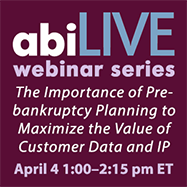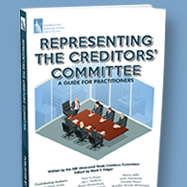|
||||||||||||||||||
► In This Issue:
|
||||||||||||||||||
|
Does the Attorney/Client Privilege and Work-Product Doctrine Protect Parties Involved in a Common Enterprise?
The short answer is, “Maybe?” Business and banking attorneys frequently represent businesses or lenders (or even bondholders and trustees) involved in joint ventures, partnerships, acquisitions, initiatives, participation loans, or other financial or joint business relationships/ventures. The issue of how far “common legal interest” protects the disclosure of work-product and attorney/client privilege (as well as the tax practitioner privilege) shared between joint venturists is of some import. On Nov. 10, 2015, the Second Circuit Court of Appeals considered this issue in Schaeffler v. U.S. Ultimately, the Second Circuit reversed the district court, with the Second Circuit holding that neither the attorney/client privilege nor the work-product doctrine was waived under the facts and circumstances of the case at hand. |
||||||||||||||||||
|
A Proposal: Regional Mediation Hubs for Mega-Case Avoidance Actions
My Nebraska client has a problem, and he’s unhappy. He’s an $80,000 preference defendant in Delaware and must travel 1,200 miles (with his attorney) for a mandatory mediation of the disputed preference claim. Although he thinks that the claim is “bogus” (despite explanations to the contrary), he has a what-choice-do-I-have-but-to-capitulate perception of all this. So, here’s a proposal to address this problem: regional mediation hubs. The proposal came about like this: I walked into a session of the ABI/St. John’s School of Law Mediation Training Symposium, sat by a distinguished-looking gentleman and started chatting — as if he is one of my peers. As it turned out, he was the luncheon speaker and a bankruptcy judge for many of the mega-cases that we’ve all heard about. |
||||||||||||||||||
|
Caveat Emptor: What A Buyer Knows Could Hurt Them
It is generally recognized that a sale of assets free and clear of successor liability claims (a “free-and-clear sale”) enhances the value of the bankruptcy estate because the purchaser will pay a higher premium for assets that do not carry liability. There is often a tension between creditors — who seek to maximize their recovery — and purchasers — who seek to avoid liability for the sins of their predecessors. In a recent opinion for In re Piper, a bankruptcy court allowed certain claims arising out of defective products manufactured by a debtor prior to the sale to proceed against a party who purchased assets from a bankruptcy estate free and clear of liens. In In re Piper, a party (New Piper) purchased substantially all of Piper Aircraft Corp.’s (Old Piper) assets free and clear of all claims, including successor liability claims, under a plan confirmed in 1995. |
||||||||||||||||||
|
Foreign Claimants? No Problem. All You Need Is a Postage Stamp to Satisfy Claims-Objection Service and Declarations from the Debtor to Assert § 502(d) Disallowance
On Nov. 13, 2015, in the U.S. Bankruptcy Court for the Southern District of New York, Judge Glenn issued a memorandum opinion in the bankruptcy case of In re Vivaro Corp., et al. with the following rulings: (1) a claim objection against a foreign entity may be served by U.S. mail under Bankruptcy Rule 3007 and need not be served in the same manner required for service of a summons and complaint in accordance with Rule 7004; and (2) when a claim objection is based on § 502(d) of the Bankruptcy Code, the debtors must meet their burden under § 547 of the Bankruptcy Code regarding the receipt of an avoidable transfer before the court will disallow and expunge such claims. In Vivaro, various foreign entities from Pakistan, Costa Rica, Canada, London, El Savador, etc. filed proofs of claim in the debtors’ cases. Vivaro Corp., et al. (the “debtors”) filed various objections to such claims, as well as to the scheduled claims of such foreign creditors. At the same time, the debtors initiated preference actions against such foreign creditors. The bases for the claims objections included § 502(d) of the Bankruptcy Code, which permits the disallowance (even if temporarily) of a claim if there are pending allegations of unreturned preference transfers. Debtors served the claims objections upon the foreign creditors via U.S. mail and attached copies of the preference transfer complaints to the notices of claims objection. The debtors used the address listed on the debtors’ schedules or listed on the appropriate proof of claim. | ||||||||||||||||||
|
Free Webinar: The Importance of Prebankruptcy Planning to Maximize the Value of Customer Data and IP
The Business Reorganization Committee will be hosting a webinar on April 4th, at 1 pm ET that will address the increasingly significant topic of how to maximize the value of customer data and intellectual property in chapter 11 cases. In particular, the panelists will address the importance of adding intellectual property and customer data to a company’s prebankruptcy “checklist,” value maximization best practices, the role of consumer privacy ombudsmen and governmental entities in connection with sales under Section 363, and potential privacy and other pitfalls faced by debtors in chapter 11 cases. Click here to register! CLE available — click here for more information. | ||||||||||||||||||
|
Have You Registered for the Annual Spring Meeting? Connect with the industry’s thought leaders at the 34th Annual Spring Meeting, featuring dynamic speakers, top education and unparalleled networking. This year’s event boasts streamlined CLE sessions, more networking opportunities than ever before, and ABI’s take on the famous Hollywood Squares game show, the inaugural “Bankruptcy Judge Squares: The Supreme Court Edition.” This year’s final night event will feature "Saturday Night Live" alum, talk show host, and political commentator Dennis Miller! |
||||||||||||||||||
|
||||||||||||||||||









